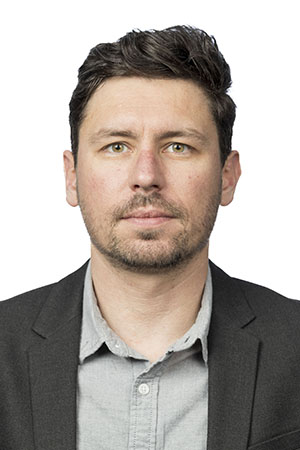
Leonardo Barleta, PhD
- Assistant Professor
- Latin American History, Spatial History, Digital Humanities
Additional Information
Education
Ph.D., Stanford University
M.A., Stanford University
M.A., Universidade Federal do Paraná, Brazil
B.A., Universidade Federal do Paraná, Brazil
Background
Dr. Leonardo Barleta is an assistant professor of history focusing on Latin America, the Portuguese Empire, spatial history, and digital humanities. He specializes in colonial Brazil and is currently working on a book about the territorial expansion of the Portuguese colonization in the 17th and 18th centuries. Tentatively entitled “Empire in the Backlands: Mobility, Settlement, and Commerce in Colonial Brazil”, the project deploys novel computational techniques—including digital mapping, network analysis, and visualizations—to reconstitute patterns of geographic mobility and explain the mechanics of settlement and colonization in a fragmented territorial reality.
Dr. Barleta has a long engagement with the emerging field of digital humanities. Since 2010, he has co-directed with Dr. Tiago Gil (Universidade de Brasilia, Brazil) the Digital Atlas of Portuguese America, as well as developed and collaborated in several digital initiatives. During his doctoral studies at Stanford University, he helped to lead the Spatial History Project at the Center of Spatial and Textual Analysis (CESTA) and later was awarded a postdoctoral fellowship with Stanford Data Science. His work was published in the Journal of Social History, Revista Brasileira de História, Land, among other venues.
Besides the main focus of his research, Dr. Barleta is interested in a broad range of topics in early modern and global history, food and material culture, and the interplay between humanistic thinking and technology, and encourages students to reach out if they are interested in these themes.
Frequently Taught Courses
- History of Latin America
- Digital History
Additional Information
Education
Ph.D., Stanford University
M.A., Stanford University
M.A., Universidade Federal do Paraná, Brazil
B.A., Universidade Federal do Paraná, Brazil
Background
Dr. Leonardo Barleta is an assistant professor of history focusing on Latin America, the Portuguese Empire, spatial history, and digital humanities. He specializes in colonial Brazil and is currently working on a book about the territorial expansion of the Portuguese colonization in the 17th and 18th centuries. Tentatively entitled “Empire in the Backlands: Mobility, Settlement, and Commerce in Colonial Brazil”, the project deploys novel computational techniques—including digital mapping, network analysis, and visualizations—to reconstitute patterns of geographic mobility and explain the mechanics of settlement and colonization in a fragmented territorial reality.
Dr. Barleta has a long engagement with the emerging field of digital humanities. Since 2010, he has co-directed with Dr. Tiago Gil (Universidade de Brasilia, Brazil) the Digital Atlas of Portuguese America, as well as developed and collaborated in several digital initiatives. During his doctoral studies at Stanford University, he helped to lead the Spatial History Project at the Center of Spatial and Textual Analysis (CESTA) and later was awarded a postdoctoral fellowship with Stanford Data Science. His work was published in the Journal of Social History, Revista Brasileira de História, Land, among other venues.
Besides the main focus of his research, Dr. Barleta is interested in a broad range of topics in early modern and global history, food and material culture, and the interplay between humanistic thinking and technology, and encourages students to reach out if they are interested in these themes.
Frequently Taught Courses
- History of Latin America
- Digital History